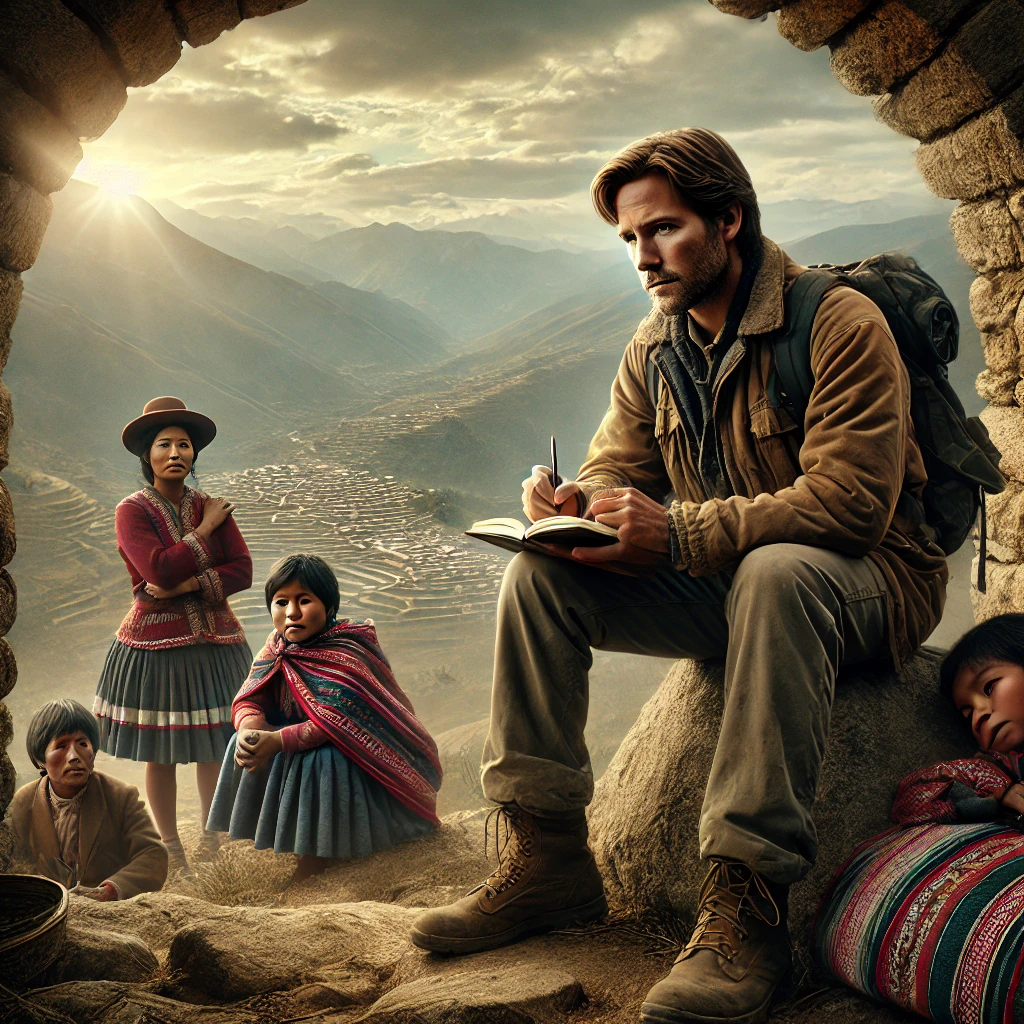
When somebody talks about history, what we think is a record of the past; instead it is more than that. It’s a living force that shapes identities, struggles, and dreams. In The Dream Teacher, Rob Mohr weaves a compelling narrative that blends history, politics, and cultural preservation into an unforgettable literary experience. Set against the backdrop of South America’s political upheavals, this novel is more than just a thriller; it’s a meditation on resistance, revolution, and the enduring power of human love.
From the very first page, Mohr pulls readers into a world that is both hauntingly real and vividly imagined. The story doesn’t simply unfold; it immerses readers in a historical and cultural landscape that echoes the struggles that have defined entire nations. But more than just a historical narrative, The Dream Teacher raises thought-provoking questions about power, oppression, and the cost of fighting for change. Mohr’s novel invites readers to view history not as a distant, academic subject but as a force that continues to shape lives today.
At its core, The Dream Teacher follows Marcus Stewart, an American educator whose mission to uplift indigenous Quechua communities places him in the crosshairs of a ruthless regime. As he navigates a world filled with betrayals, secret prophecies, and looming revolution, Marcus embodies the fight for justice. His journey is not just about survival—it’s about preserving history and standing against oppression.
Mohr masterfully infuses his story with real historical struggles, drawing inspiration from Bolivia’s long history of political unrest. The novel echoes the experiences of those who have lived under autocratic rule, where power is wielded through military might and political manipulation. Figures such as Hugo Banzer, Bolivia’s dictator trained in the U.S.-run School of the Americas, loom large in the background, reminding readers of the real-world implications of Marcus’s fight.
Fans of political thrillers will find The Dream Teacher gripping, but it also offers something more; a deep, thought-provoking look at the forces that shape our world. Readers who enjoy works like Pedagogy of the Oppressed by Paulo Freire will appreciate Mohr’s emphasis on education as a revolutionary force. The book sheds light on the power dynamics that exist between those in control and those who resist, making it an essential read for anyone interested in political resistance and the struggles of marginalized communities.
One of the most compelling aspects of The Dream Teacher is its dedication to indigenous rights and cultural heritage. Mohr’s background in literature and his studies of Paulo Freire’s Pedagogy of the Oppressed shine through in his storytelling. The novel doesn’t just depict conflict—it asks readers to consider the cost of erasing cultures and the responsibility we all share in preserving history.
Through richly drawn landscapes and characters, Mohr immerses readers in a world where history, language, and tradition are more than relics—they are battlegrounds. The indigenous Quechua people’s struggle against political oppression reflects real-world histories, making The Dream Teacher an important book for readers who seek not just entertainment but awareness. The novel explores how colonial legacies continue to impact indigenous communities, from land dispossession to economic marginalization.
Marcus’s journey is intertwined with that of Maria Helena, a fiercely intelligent and determined Bolivian woman who has defied societal expectations. Her struggle for autonomy and education mirrors that of countless women who have fought to claim their space in male-dominated societies. Through her character, Mohr highlights the intersections of gender, class, and political power, making The Dream Teacher a multi-layered narrative that speaks to various social justice issues.
Mohr does not shy away from illustrating the deeply personal toll that political upheaval takes on individuals. Through Marcus, he explores the sacrifices made by those who dedicate their lives to social change. The protagonist’s internal conflicts—his longing for family, his moments of self-doubt, and his relentless drive to make a difference—make him a deeply human character. His struggle is not just against a corrupt government but against the exhaustion and disillusionment that often accompany activism.
Mohr’s writing captures the emotional weight of Marcus’s journey, particularly in moments of reflection. Scenes where Marcus questions his choices, or where he finds solace in the beauty of the Andean landscape, offer a poignant contrast to the chaos of the political world around him. These moments remind readers that history is not just about grand events but about the lived experiences of individuals caught in its currents.
If you’re a fan of historical fiction, political intrigue, and deeply human stories, The Dream Teacher is a novel you won’t want to miss. Mohr’s ability to blend storytelling with social commentary makes this book not just an engaging read but an essential one.
In a time when cultural preservation and political awareness are more crucial than ever, The Dream Teacher offers a story that resonates far beyond the page. The novel challenges readers to think about history in a new way—not just as a series of events, but as an ongoing struggle for justice. It reminds us that the past is never truly behind us; its echoes shape our present and influence our future.
© Copyrights 2025 Rob Mohr. All Rights Reserve